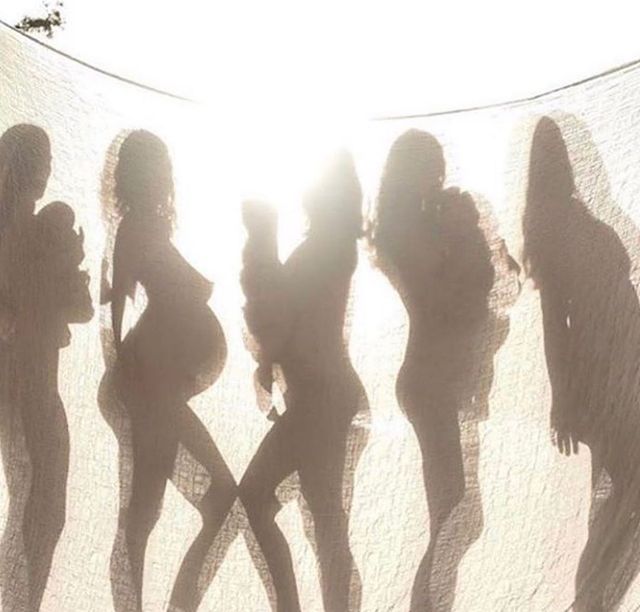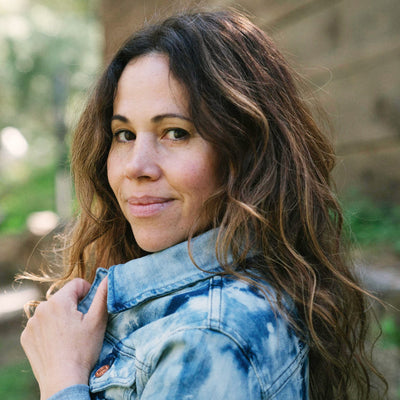Doulas, midwives, OB/GYNs, lactation consultants… there are so many players that can make up your potential birthing (and postpartum) team, that it might be challenging to know where to begin. But while all play crucial roles, doulas bring a particularly unique (and too often, unsung) skillset to the table that can be transformative for the entire pregnancy, birthing, and postpartum experience—not just for the individual, but for entire communities at large.
“I find that one of the main roles I serve as a doula is to help awaken knowledge, to educate and inform people of their options,” says Patti Quintero—doula, founder and CEO of Uma Mother, and Perelel Panelist. Below, she explains the benefits of having a doula—and why investing in training doulas benefits all of us.
First things first: What is a doula?

“A doula is a person who comes in to support, guide and nurture another person in one of life’s greatest rites of passage, like birth, postpartum and death,” says Quintero. In pregnancy, a doula is dedicated to providing physical and emotional support to moms-to-be—ultimately becoming their advocate and affirming a laboring mother’s birth experience, preferences, and needs. They help reassure, empower, and reduce anxiety for their patients.
Doulas do not deliver babies or provide medical advice, but they’re there to provide guidance and help ensure that mom feels seen, heard, and supported—from pregnancy, to her birth plan, to her postpartum experience.
“Every person’s choices and experience of birth are unique, so the key is to understand the landscape well and feel able to navigate that space feeling emotionally and physically supported, respected and loved,“ says Quintero.
What are some of the proven benefits of having a doula?
Research shows that doulas can have a transformative impact on the individual birthing and postpartum experience, as well as collective maternal health—especially against the backdrop of a critical maternal mortality crisis in the US.
Studies have indicated that women who have access to doulas are:
-
Less likely to give birth to a baby with low birth weight
-
Less likely to experience an unexpected and/or serious birth complication
-
Significantly more likely to initiate breastfeeding
Additionally, studies show that doula care for birthing people led to fewer C-sections, a decrease in the utilization of pain medication, and a reduction in the maternal mortality rate in BIPOC communities.1,2,3
Why? Because doulas are, at their core, birthing advocates—so that women who might otherwise lack access to attentive, empathetic, and culturally appropriate prenatal care have someone on their team who can insist on that support on their behalf.
What kind of techniques do doulas provide to help women prepare for birth and postpartum?
It depends on personal preference, but Quintero likes to draw on her experience as a yoga and meditation experience. “I work with practices that help bring you back home to your inner teacher. These include yoga practices, movement, meditation, mindful breathing, communication, stress release and self-inquiry.”
And for postpartum? “I feel like slowing down, resting and doing less is one of the most challenging practices for some of us,” says Quintero. “In early motherhood, these practices are key for both you and your baby to thrive.”
That said, finding a doula who suits your specific needs and personality is kind of like finding a therapist—the goal is finding someone you feel totally comfortable with, which is an entirely personal decision.
$49.95
$49.95
$49.95
Shop the Article:

1st Trimester Prenatal Pack
/ Month
Shop Now

2nd Trimester Prenatal Pack
/ Month
Shop Now

3rd Trimester Prenatal Pack
/ Month
Shop Now
“I like to remind new mothers that they, too, are in their infancy stage, learning a new language and way of life. Compassion, patience and curiosity are cornerstones in motherhood. When we do the work on ourselves to better understand our patterns and habits we are gifting our children with an awakened parent and guide. This is far from the notion of perfection, instead, it is a way of embracing your humanness and your ever-changing process with love.
This article is for informational purposes only. It is not, nor is it intended to be, a substitute for professional medical advice, diagnosis, or treatment and we recommend that you always consult with your healthcare provider. To the extent that this article features the advice of physicians or medical practitioners, the views expressed are the views of the cited expert and do not necessarily represent the views of Perelel.
Resources:
- Sobczak A, Taylor L, Solomon S, Ho J, Kemper S, Phillips B, Jacobson K, Castellano C, Ring A, Castellano B, Jacobs RJ. The Effect of Doulas on Maternal and Birth Outcomes: A Scoping Review. Cureus. 2023 May 24;15(5):e39451. doi: 10.7759/cureus.39451. PMID: 37378162; PMCID: PMC10292163.
- Gruber KJ, Cupito SH, Dobson CF. Impact of doulas on healthy birth outcomes. J Perinat Educ. 2013 Winter;22(1):49-58. doi: 10.1891/1058-1243.22.1.49. PMID: 24381478; PMCID: PMC3647727.
- Van Eijk MS, Guenther GA, Kett PM, Jopson AD, Frogner BK, Skillman SM. Addressing Systemic Racism in Birth Doula Services to Reduce Health Inequities in the United States. Health Equity. 2022 Feb 2;6(1):98-105. doi: 10.1089/heq.2021.0033. PMID: 35261936; PMCID: PMC8896213.




















